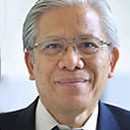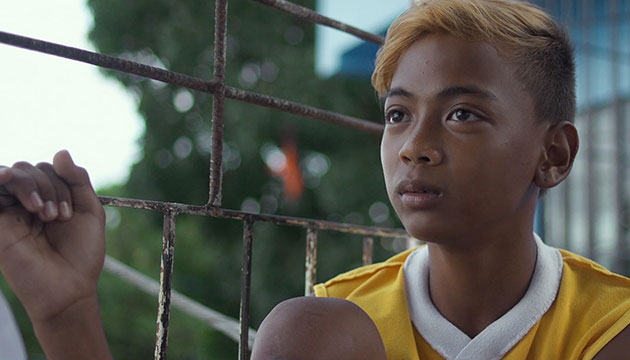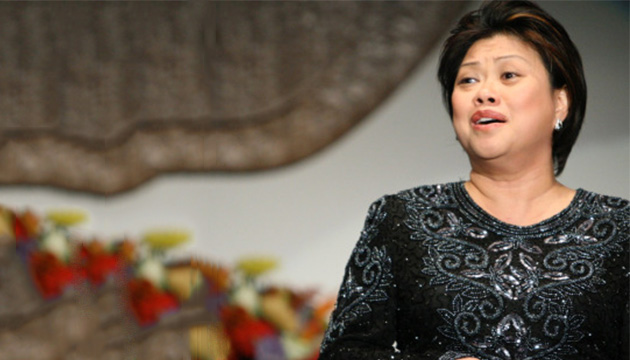When my wife Eleanor and I were writing our book Seeking a Better Life Abroad (Manila: Anvil Publishing, Inc., 2008) based on her study of Filipinos in Canada
from 1957 to 2007, we were impressed by the potential of the 1.5 generation we interviewed. They were so called because they arrived as young children and grew up in Canada, thus were halfway between the first and second generations.
The first wave of 1.5 generation were children of middle class professionals who came as landed immigrants in the 1960s to 1970s. They went to good schools in the Philippines and had no trouble adjusting to the Canadian system of education.They lived in a Filipino home imbibing Philippine culture, values and tradition, while growing up socialized in Canada’s diverse society. When asked how they saw themselves in Canada, they were unanimous in saying: “We are proud of our Filipino heritage but also appreciate what Canada has given us.”
As Ellie Flagg who arrived as a three-year old and now married with kids of her own explained, “I feel fortunate to have been able to choose and keep the best of two worlds – the East and the West.I like being an Asian with good Filipino values while living in Canada with plenty of opportunities to rise on merit. This is an extraordinary gift.”
As more and more immigrants arrive in Canada, the children of succeeding waves of Filipino migrants have not all fared as well. There were reports that some of these children were dropping out of school although the 2015 study “Canadian Immigrant Youth and their Academic Performance”by Angela Rai of Simon Fraser University showed that at the national level, young Canadian Filipinos are doing very well in school
From the 2011 National Household Survey data, Rai found that between 2005 and 2011, 94.9 percent of second generation Filipinos aged 20 to 24 have finished high school. Those who did not complete high school were only 4.6 percent in British Columbia, 6.5 percent in Alberta, and five percent in Ontario. The young Filipino cohorts in Quebec did not fare as well, with 22 percent of them not finishing high school, probably because of language difficulties.
Disadvantaged few
The young Filipinos surveyed in Quebec belong to a small disadvantaged group found in other provinces of Canada as well. They are mostly children of temporary workers with low income and low status jobs. They did not have a good Philippine education before coming to Canada. They suffered from years of separation before they could join their parentsas immigrants. They encountered adjustment difficulties in school and were bullied by gangs or their heavy accent made fun of. Their parents, although skilled, were minimum wage earners, so they had to work-part time to contribute to the family income.
Despite positive findings about the more recent 1.5 generation in a nationwide survey, some studies claim that the 1.5 youngsters have lower educational attainments than their parents. These conclusions are counter-intuitive because, in general, the children of immigrants do better than their parents. Could there be problems with these studies themselves? Problems such as the following?
First, it might be a problem of small sample size in the studies. A 2012 study by Geraldine Pratt and May Farrales, for example, was based on interviews with 45 Filipino high school students who were doing well in their studies and 46 who were facing problems. This was out of 12,238 total ESL or English as a Second Language high school student population in Vancouver. Moreover, the students were drawn from only two high schools in East Vancouver where many low income Filipinos live. Thus the findings should apply only to this small sample of 46, not to all 1.5 generation Filipinos in Canada.
Second, it might be a question of the explanatory variables chosen. A 2008 study by Pratt and the Philippine Women’s Centre found that Filipino high school students who spoke Tagalog at home had lower grade averages than other ethnic groups. Again, by choosing students who spoke Tagalog at home, the study reached mainly recent migrants still dealing with adjustment problems.
Finally, it might be a problem of purposive sampling. The 2012 Pratt and Farrales study “targeted” schools where the Vancouver School Board had set up a program to assist Filipino students who were facing difficulties. This approach, of course, may have biased the research findings.
Despite the methodological problems of these studies, it is important for Canadian Filipinos to recognize that a small number of young Filipinos are facing problems because of four factors.
First, when young Filipinos arrive in Canada, they are humiliated when set back two grade levels because the Philippines requires only 10 years to finish high school while it takes 12 in Canada.
Second, although most Filipinos understand spoken English, their grammar is imperfect and their heavy accent makes communication difficult.
Third, high school mathematics in Canada is different from math taught in the Philippines. Filipinos who are already in college when they arrive in Canada find they had forgotten high school math.
Finally, for a number of Filipino children who had been separated from their parents for about eight years or so the adjustments to a life in a foreign country could be traumatic.
While limited to a small disadvantaged group, these problems of recent 1.5 Filipinos and their parents need to be recognized and rectified if this group of next generation Canadian Filipinos are going to be upwardly mobile. If not, there is a danger that these Filipinos who come to Canada seeking a better future may not realize their dreams. For many of these youngsters, the best is yet to be.














